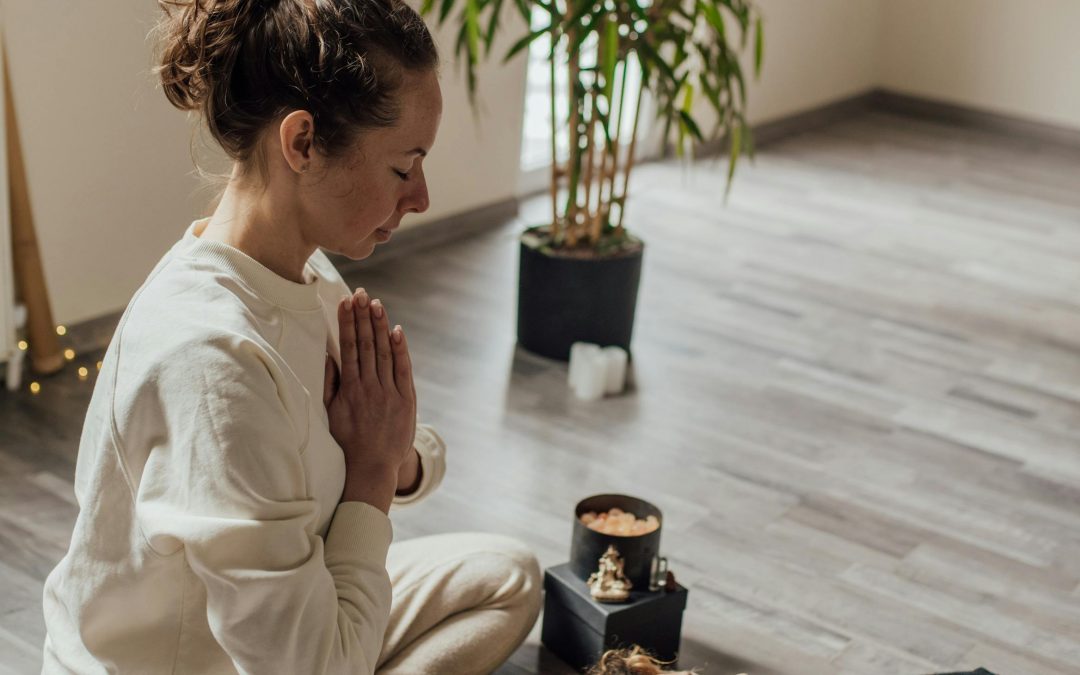Cultural Perspectives on Trauma and Healing: How Different Cultures Understand and Address Trauma and Traditional Healing Practices from Around the World
Trauma is a universal human experience, yet the way it is understood, processed, and healed can vary significantly across different cultures. Cultural perspectives on trauma and healing encompass a wide array of beliefs, rituals, and practices that reflect the diversity of human experience and wisdom. This article explores how various cultures understand and address trauma, highlighting traditional healing practices from around the world.
Understanding Trauma Across Cultures
Western Perspectives on Trauma
In Western cultures, trauma is often viewed through a psychological and medical lens. The predominant understanding is influenced by scientific research and clinical practices. Key concepts include:
- Post-Traumatic Stress Disorder (PTSD): A widely recognized condition characterized by symptoms such as flashbacks, anxiety, and hypervigilance.
- Therapeutic Interventions: Psychotherapy, cognitive-behavioral therapy (CBT), and medication are common treatments.
- Support Systems: Emphasis on support groups, counseling, and psychiatric care.
While effective, these approaches can sometimes be critiqued for being overly individualistic and neglecting the broader social and cultural context in which trauma occurs.
Indigenous Perspectives
Indigenous cultures often have a holistic view of trauma, seeing it as an imbalance that affects the individual, community, and environment. Healing is a communal process that integrates spiritual, emotional, physical, and relational elements.
- Connectedness: Emphasis on connection to land, ancestors, and community.
- Rituals and Ceremonies: Healing practices often involve communal rituals, storytelling, and ceremonies that restore harmony.
- Traditional Healers: The role of shamans, medicine men and women, and spiritual leaders is crucial in facilitating healing.
Eastern Perspectives
Eastern cultures, particularly those influenced by Buddhism, Hinduism, and Taoism, approach trauma with a focus on inner peace, balance, and spiritual growth.
- Mindfulness and Meditation: Practices like meditation and mindfulness are central to managing trauma and promoting mental well-being.
- Karma and Dharma: Concepts of karma (the law of cause and effect) and dharma (one’s duty or path) can influence how individuals perceive and respond to trauma.
- Community Support: Emphasis on familial and communal support systems in the healing process.
African Perspectives
In many African cultures, trauma is understood as both an individual and collective experience, deeply intertwined with spiritual beliefs and practices.
- Ubuntu Philosophy: The principle of Ubuntu, which means “I am because we are,” highlights the interconnectedness of all people. Healing is seen as a communal responsibility.
- Rituals and Traditional Medicine: Use of traditional rituals, herbal medicine, and the guidance of healers and elders.
Spiritual Practices: Engagement with ancestors and spiritual entities is often part of the healing process.
Native American Healing Practices
Native American cultures have a rich tapestry of healing practices that emphasise balance, spirituality, and connection to nature.
- Sweat Lodges: These are purification ceremonies involving intense heat and steam, which are believed to cleanse the body and spirit.
- Vision Quests: A rite of passage involving solitude and fasting, aimed at gaining insight and spiritual guidance.
- Drumming and Chanting: Rhythmic drumming and chanting are used to induce altered states of consciousness and facilitate healing.
African Traditional Healing
African traditional healing practices are diverse and vary significantly across different ethnic groups and regions.
- Herbal Medicine: Extensive use of plants and herbs to treat physical and emotional ailments.
- Spiritual Cleansing: Rituals to cleanse the individual of negative energies and influences.
- Divination: Practices such as throwing bones or using other methods to seek guidance from ancestors and spirits.


Eastern Healing Practices
Eastern traditions offer a variety of practices that promote holistic healing and balance.
- Ayurveda (India): An ancient system of medicine that emphasizes balance among body, mind, and spirit through diet, herbal treatments, and yoga.
- Traditional Chinese Medicine (China): Practices such as acupuncture, herbal medicine, and qigong aim to restore the flow of Qi (life energy) and balance Yin and Yang.
- Buddhist Meditation (Various Countries): Meditation practices that focus on mindfulness, compassion, and awareness to heal the mind and spirit.
Latin American Healing Practices
Latin American cultures blend indigenous traditions with influences from African and European practices.
- Curanderismo (Mexico): A traditional healing practice that combines herbal medicine, spiritual cleansing, and rituals performed by curanderos (healers).
- Santería (Cuba): A syncretic religion that merges Yoruba traditions from West Africa with Catholicism, involving rituals, divination, and herbal remedies.
- Ayahuasca Ceremonies (Amazon Basin): Use of the Ayahuasca brew in guided ceremonies to induce spiritual experiences and healing.
Polynesian Healing Practices
Polynesian cultures, particularly in Hawaii, have unique healing traditions that emphasize spiritual and physical well-being.
- Lomi Lomi Massage: A traditional Hawaiian massage technique that aims to release tension and promote healing.
- Ho’oponopono: A Hawaiian practice of reconciliation and forgiveness, often involving prayer, discussion, and confession to restore harmony in relationships.
- Kahuna Practices: Traditional healers known as Kahunas use a combination of spiritual guidance, herbal remedies, and rituals to facilitate healing.
“Understanding and embracing the diverse ways cultures approach healing not only enriches our knowledge but also deepens our compassion and effectiveness in addressing trauma. Healing is as much about the spirit as it is about the body, and true recovery lies in the harmony between the two.”

Integrating Traditional Practices with Modern Therapies
The integration of traditional healing practices with modern therapeutic approaches can offer a more comprehensive and culturally sensitive framework for trauma recovery. Here are some ways this integration can be achieved:
- Culturally Sensitive Therapy
Therapists and counselors can be trained to understand and respect the cultural backgrounds of their clients. This includes:
- Cultural Competence: Developing an understanding of the cultural context and specific needs of clients from diverse backgrounds.
- Incorporating Traditions: Allowing space for traditional healing practices within the therapeutic process, such as prayer, rituals, or the involvement of community healers.
- Community-Based Approaches
Healing from trauma can be more effective when it involves the community. This includes:
- Community Support Groups: Creating support groups that are culturally specific and provide a safe space for sharing and healing.
- Collective Rituals: Encouraging participation in community rituals and ceremonies that promote collective healing and support.
- Holistic Health Programs
Health programs that integrate both modern and traditional practices can address the needs of the whole person. This can involve:
- Mind-Body Practices: Incorporating practices like yoga, tai chi, and meditation into trauma recovery programs.
- Herbal and Natural Remedies: Utilizing herbal medicine and natural remedies alongside conventional treatments to address physical and emotional symptoms of trauma.
- Education and Advocacy
Educating healthcare providers and the general public about the value of traditional healing practices can foster greater acceptance and integration. This includes:
- Workshops and Training: Offering workshops and training sessions for healthcare providers on traditional healing practices and their benefits.
- Public Awareness Campaigns: Promoting the understanding and respect of diverse cultural healing traditions through public awareness campaigns.
Challenges and Considerations
While integrating traditional healing practices with modern therapies can be beneficial, there are also challenges and considerations to keep in mind:
- Respect for Cultural Practices
It is essential to approach traditional healing practices with respect and humility, recognizing the deep cultural and spiritual significance they hold.
- Avoiding Cultural Appropriation
Practitioners should be cautious of cultural appropriation, ensuring that traditional practices are used ethically and with permission from the communities they originate from.
- Evidence-Based Practice
While many traditional practices have been used for centuries, it is important to combine them with evidence-based therapies to ensure safety and efficacy in trauma recovery.
- Individual Preferences
Each individual’s healing journey is unique, and it is crucial to respect personal preferences and choices in their approach to healing.

Cultural perspectives on trauma and healing offer a rich tapestry of wisdom and practices that can enhance our understanding and approach to trauma recovery. By recognizing and integrating these diverse traditions, we can create more inclusive, holistic, and effective frameworks for healing. Whether through the communal rituals of indigenous cultures, the mindfulness practices of Eastern traditions, or the holistic approaches of African and Latin American healing, there is much to learn and honor in the global landscape of trauma recovery.
As we continue to explore and embrace these cultural perspectives, we move closer to a world where all individuals can find the support and healing they need in a manner that resonates deeply with their cultural identity and personal journey.
Read More

EMDR V’s Talk Therapy
Deciding which type of therapy is best for your mental health can feel overwhelming, especially when there are multiple options available. Eye Movement Desensitisation and Reprocessing (EMDR) and Talk Therapy are two widely practised approaches, each with unique...

The Impact of Nightmares on Mental Health
Understanding Nightmares What Are Nightmares? Nightmares are vivid, disturbing dreams that typically occur during the rapid eye movement (REM) stage of sleep. They often involve themes of danger, fear, and threat, leading to intense emotional responses such as terror,...
